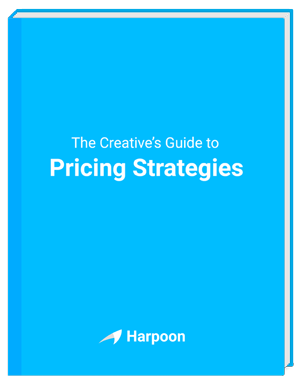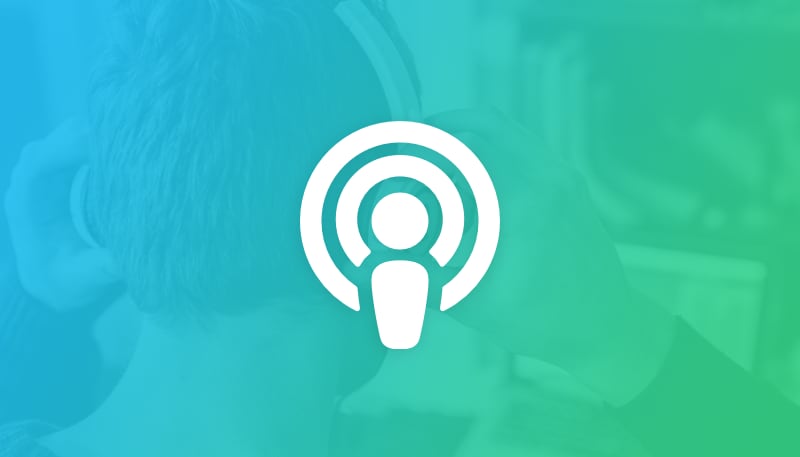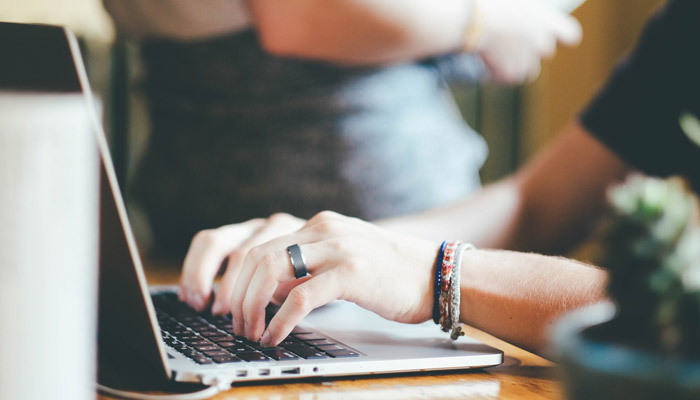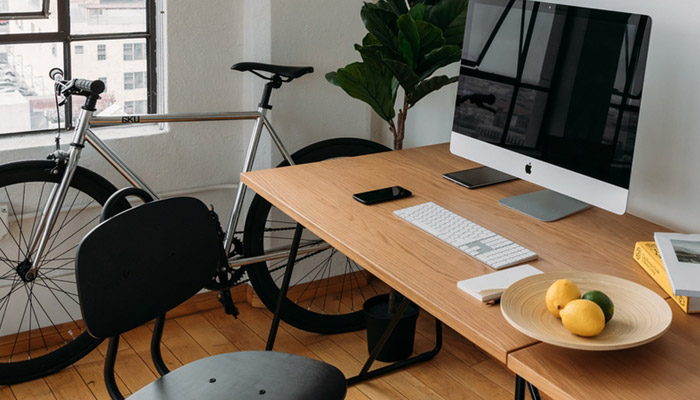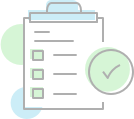
Managing your money as a freelancer can become a nightmare. I’m not saying this to scare off those of you who are considering ditching their day jobs to work from coffee shops and run their own small business. However, as with most career paths, freelancing has certain disadvantages. And like being your own boss wasn’t tricky enough, budgeting an irregular income comes with its unique sets of challenges.
I never particularly enjoyed my previous office job, but I do miss one thing: the steady paycheck. Regardless of how much work I did any given month or how many sick days I’ve taken, I would take home exactly the same amount of money. I could organize my spending accordingly and was never afraid that I won’t be able to make rent or buy food. Of course, there was always the possibility of getting fired, but even then you usually have a few weeks to plan your next move, and sometimes, if you’re lucky, even a severance package to get you through the tough times.
As a freelancer, your income fluctuates. You can make thousands of dollars one month and only a few hundred the next. Planning your spending can be stressful, to say the least. Plus, due to these income fluctuations, it becomes even more important to have a solid budget and a sturdy emergency fund. You need to make sure that all your important expenses are covered regardless of how many clients come your way. So how do you go about managing your cash as a freelancer? I have a few tips that might help.
Build an Emergency Fund
I can’t stress how important an emergency fund is for solo entrepreneurs. Before embarking on this wonderful adventure that is the #freelancelife, make sure your savings account has enough cash to cover your basic expenses for at least three months. Preferably six. Ideally even more. You will thank the overlords for this money if your business doesn’t take off right away or you’re unable to build a large enough client base in the very beginning. Moreover, having extra cash will come in handy during those dreaded slumps all freelancers experience from time to time. Whenever you dip into your savings, put the money back as soon as possible. You should always have a safety net to rely on when times get tough.
Track Your Expenses
Since I’m guessing you’re an adult human who has been managing their own money for a while, you probably know approximately how much cash you spend any given month. For a more exact figure, track all your expenses for 30 days. Write down everything you spend or use software like Mint to do it for you. When the month is up, sit down and review your findings. You’d be surprised by how much cash goes on mundane things like coffee, brunch, or office supplies. Personally, I was appalled to see how much I ~actually~ spend on groceries, even though I used to budget much less for food. Despite what you may have heard, a girl’s gotta eat.
Once that’s done, you can start building a baseline budget. This should cover your predictable expenses – food, housing, utilities, transportation, any medical costs you may have. These are things you basically can’t live without, so you have to make sure you make enough money every month to cover all of them. This will help you live within your means and prevent you from accumulating any unnecessary debt.
Assess Your Gigs
In an ideal world you should have a few consistent gigs that bring in approximately the same amount of money every month. That way, you can create a budget based solely on those gigs and use cash from extra work to build up your emergency fund or pay down debt. If no consistent gigs are on the horizon, take some time at the beginning of every month to project approximately how much money you’ll make by the end of it. As long as your basic expenses are covered, you are safe.
But what’s there to do when your projections show you’ll be in the red? Well, you can either increase your rates, or boost your marketing efforts to gain new clients. Nobody said being a freelancer is a walk in the park.
Set Up a System
Paying yourself a paycheck each month may help you keep your expenses under control. There are a few ways to do this:
- Set up two bank accounts. Direct all your income into one (preferably a savings account), and then transfer your paycheck in the other (preferably a checking account). Use the paycheck to take out cash, pay bills, and so on. Don’t touch the rest of the income unless you absolutely have to.
- If you don’t want to deal with separate accounts, there is another way to go. Once your income is in your account, pay all your bills and then withdraw what’s left of your paycheck from the ATM. From that moment on, pay everything with cash. It’s not a particularly glamorous technique, but it does the trick.
- Don’t want to withdraw that much money at once? Keep tracking your expenses via spreadsheets or special software to make sure you won’t spend more than your paycheck. It can get tedious, but it’s worth it if you want to meet your saving goals in the long run.
Diversify Your Income
No one likes to think about worst-case scenarios, I know. As a freelancer, however, you have no job security. Even when you’ve a regular, consistent gig, it can go away without any notice. After all, when companies need to cut costs, freelancers are often the first ones to go. No severance package included. That’s why it’s important for solo entrepreneurs to diversify their income as much as possible. If one gig goes, you will have three or four others to rely on. Try not to let any single client account for more than 50 percent of your income. Ideally, you should have three-four regular clients, plus the occasional one-off job.
As you gain more freelance experience budgeting will become easier. Planning your finances may take some work, but it’s extremely important if you want to maintain your financial health – and your sanity. Remember the golden rule: make it a priority to save as much as you can until you build an emergency fund you’re happy with. Your financial stress will decrease significantly.
